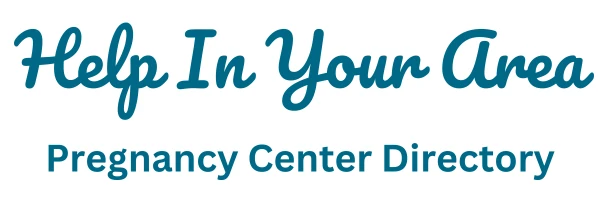Parenting
Understanding Your Options and Support
Single parenting is not an easy choice to make. There will be many days where you might not think you can make it. Even though we’re glad you chose life, we also want to make sure that you are not placing yourself in a stressful and harmful situation. Remember, it’s important to explore all of your options! At local pregnancy centers, advocates are ready to assist you in discovering all the support services that available in your area. They exist to support you throughout your pregnancy and beyond!
Here are some questions to consider about single parenting:
Where can I live with my baby if I can’t afford to live on my own?
A pregnancy center will help you explore your housing options before your baby is born, including many safe and affordable places. Most single parents need to work, so consider your childcare options in each situation:
- Living with a friend or relative
- Staying in a group home for single mothers
- Living with your parents or the birth father’s parents
- Finding an apartment in public, subsidized housing
Can anyone help me with baby items, maternity clothes, etc.?
Your local pregnancy center has many resource referrals for you and your baby. They can assist you with maternity clothes, baby furniture, baby clothing, parenting classes, etc. Sometimes requirements – like attending a parenting classes, may be necessary. These classes can be incredibly helpful when your baby is born.
How do I get support from the father?
The father’s legal responsibilities include providing financial support for your child. Most states have child support enforcement agencies that will withhold money from his paycheck if he is unwilling to pay. If the father is unable to provide support, you need to plan for caring for your baby without his help. The father’s financial support may influence court decisions about custody and visitation rights.
In some states, the father’s name is not put on the birth certificate unless you request it. If he has signed a notarized paternity affidavit, he may have legal rights, including visitation and the right to deny or consent to medical decisions for your child.
Your local pregnancy center can provide more details about birth father’s rights and responsibilities. It’s important for you and the father to discuss your individual rights and responsibilities. A child’s needs are best met when both parents work together.
Can I get job training if I don’t want to be on welfare?
Your local pregnancy center can assist you in finding programs that best fit your employment needs. If you are receiving government assistance, you may be eligible for programs that help with job training, tuition, and childcare. Otherwise, you might rely on educational grants and loans while working to cover living expenses and childcare. Pregnancy centers can refer you to job training programs in your community that typically offer some level of child care. Visit with them today for help in discovering services that support your job-related educational needs.
Can I still choose adoption later if parenting becomes too difficult?
If single parenting proves too challenging and you decide to consider adoption, know that adoption is still an option. It takes courage to acknowledge that you might not be able to provide everything your child needs by yourself. A local pregnancy center will gladly connect you with several adoption agencies in your area that can assist you. When making an adoption plan, it is typical for you to be able to select the adoptive parents and meet and possibly arrange future contact with your child.
What if I’m unsure about being a good parent?
Parenting is a challenge at any age and under any circumstance. Many pregnancy centers offer parenting classes that will support you in all areas of home care and baby management. Realize that they are there to help you and are committed to providing the resources and guidance you need.
Emotional Support and Counseling
Pregnancy centers understand that single parenting involves not just physical but also emotional challenges. To support you, they offer services where you can speak freely about your feelings, fears, and hopes. Their compassionate advocates provide a safe, non-judgmental space to navigate your emotions, offering guidance and support to help you find balance and peace in your journey as a single parent.
Community Support Networks
Knowing you’re not alone in your journey can make a world of difference. That’s why your local pregnancy center will connect you to community support networks. These groups offer a platform to meet other single parents, share experiences, gain insights, and build friendships. Being part of a community that understands your situation can provide invaluable emotional support and practical advice.
Financial Guidance
Managing finances is a crucial aspect of single parenting. Your local pregnancy center will offer you financial guidance to help you budget effectively, understand and access government benefits you’re entitled to, and plan for your and your child’s future. They aim to empower you with the knowledge and tools needed for financial stability and independence.
Educational Opportunities
Advancing your education can open doors to better job opportunities and a more secure financial future. Pregnancy centers are there to guide you in exploring educational opportunities and navigating the challenges of balancing parenthood with personal growth. Whether it’s information about scholarships, flexible learning options, or childcare during classes, they’re there to support your educational goals.
Success Stories or Testimonials
Hearing from those who’ve walked in similar shoes can be inspiring. Pregnancy centers will share success stories and testimonials from individuals who have navigated the path of single parenting with their support. These stories of resilience, growth, and triumph offer hope and encouragement, showing that with the right support, you too can thrive as a single parent.
Long-term Support
The commitment to you extends beyond the pregnancy and early parenting stages. Pregnancy centers offer long-term support to ensure you have a reliable partner at every stage of your parenting journey. Whether you need assistance months or even years down the line, their doors remain open to provide ongoing support, resources, and care.
In embracing the journey of single parenting, it’s vital to remember that a network of support, guidance, and resources surrounds you. Pregnancy centers are not just here to help you navigate the initial stages of pregnancy and early parenting; their support extends into all facets of single parenthood. From finding safe housing and obtaining necessary baby items to navigating legal matters with the child’s father and exploring job training opportunities, they are committed to assisting you every step of the way.
Beyond the practical aspects, they also offer emotional support to help you manage the emotional challenges that come with single parenting. Their community support networks provide a platform for sharing experiences and building connections with others in similar situations. They offer financial guidance and educational opportunities to empower you towards financial independence and personal growth.
Their collection of success stories and testimonials serves as a source of inspiration and hope, demonstrating the resilience and strength that can emerge from the challenges of single parenting. Remember, the decision to parent alone is a brave and commendable choice, and with the right support, it can be a deeply rewarding journey.
Your local pregnancy center is dedicated to providing long-term support, ensuring that you have a reliable and compassionate partner at every stage of your parenting journey.
Frequently Asked Questions
Question: Do I need an appointment?
Answer: Walk-ins are welcome. However, it is best to make an appointment to minimize your office wait time.
Question: What is the cost?
Answer: All services are free and confidential.
Question: What should I expect when I come for my visit?
Answer: Upon your arrival, a friendly receptionist will guide you to meet your client advocate. This advocate will offer you a judgment-free space to talk, followed by essential information and a pregnancy test. In the event of a positive test result, a dedicated medical professional will perform a limited ultrasound to verify the pregnancy's viability and estimate the age of the fetus.
Question: How long after sex does it take for a pregnancy test to work and how accurate is the test?
Answer: Pregnancy tests can be performed 7 to 10 days after conception. A client with a negative result may be invited to return within 2 weeks for a repeat test if she has not had her period.
If you have taken a home pregnancy test, you may want to confirm results with a laboratory-quality test at your local pregnancy center. These pregnancy tests detect HCg levels within 7 to 10 after conception.
Question: Will you tell anyone about my visit?
Answer: Pregnancy centers maintain a rigorous privacy and confidentiality policy. Clients' information is safeguarded against unauthorized disclosure, respecting their right to privacy, except in instances mandated by law. This includes situations necessary for public health, preventing harm to the client or others, or in specific circumstances where the use or disclosure of information is justified without prior consent, such as in cases of abuse reporting or suicide/homicide prevention.
Question: When should I schedule an appointment?
Answer: High-quality, medical-grade pregnancy tests are capable of detecting pregnancy from the first day after your initial missed period. We advise scheduling an appointment if you've missed a period, have any queries related to pregnancy, or suspect that you might be pregnant.
Question: How far along do I have to be to get a free ultrasound?
Answer: After an initial consultation with a client advocate, many pregnancy centers offer on-site ultrasound scans. These limited ultrasounds are conducted by a licensed nurse sonographer or a registered diagnostic medical sonographer (RDMS) and are subsequently reviewed by a licensed physician. The purpose of an ultrasound is to confirm the viability of the pregnancy and to establish the gestational age.
Question: I already know I'm pregnant and I want an abortion, what's next?
Answer: It is advisable to have an ultrasound to confirm the viability of your pregnancy and to ensure it is located within the uterus, as 20% to 25% of pregnancies end in miscarriage. Moreover, the ultrasound helps in determining the stage of your pregnancy, which is essential in making an informed decision about the type of abortion procedure you may consider. Many pregnancy centers offer a limited ultrasound free of charge.






